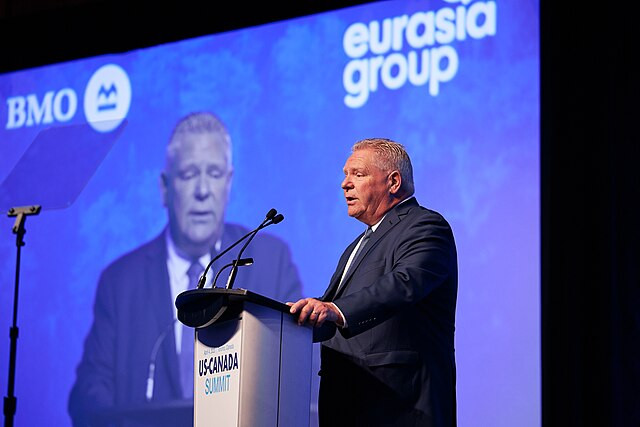Ontario Premier Doug Ford escalated tensions in the ongoing U.S.-Canada trade dispute on Monday, threatening to cut electricity exports to the United States if President Donald Trump moves forward with additional tariffs on Canadian goods. The warning comes as Ontario implements a 25% surcharge on power exports to three U.S. states-New York, Minnesota, and Michigan-affecting 1.5 million homes and businesses.
"If the United States escalates, I will not hesitate to shut the electricity off completely," Ford said at a press conference. "Believe me when I say I do not want to do this, I feel terrible for the American people, because it's not the American people who started this trade war. It's one person who's responsible. That's President Trump."
The surcharge, which took effect Monday, will increase energy costs for American families and businesses, adding approximately $100 per month to household bills, according to Ontario's government. However, Ford acknowledged that retaliatory measures could also hurt Canada's economy, which remains heavily dependent on exports to the United States.
Trump's latest tariff threats include new levies on Canadian dairy and lumber, mirroring the duties that Canada imposes on U.S. products. The president also warned that tariffs on Canadian and Mexican imports could increase beyond 25% if the countries fail to take stronger action against fentanyl trafficking across the U.S. border.
Ford has made multiple appearances on U.S. cable news in recent weeks, positioning himself as a leading voice against Trump's trade policies. Last week, he vowed to "shut off power to the U.S. with a smile on [his] face" if tariffs were expanded. On Monday, he softened his tone slightly, expressing a desire for urgent talks with Trump.
"We're seeing inflation happening already, and it's unnecessary. We don't need to do this," Ford said in an interview with NewsNation. "We can have the two most prosperous countries in the world. We need to sit down as quickly as possible."
The ongoing trade conflict has rattled financial markets. The Dow Jones Industrial Average closed down 890 points on Monday, a 2.1% drop, while the Nasdaq plunged 4%. Analysts point to the uncertainty surrounding Trump's shifting tariff policies as a key factor driving volatility.
Trump's economic team has downplayed concerns about a potential recession. National Economic Council Director Kevin Hassett said Monday that he would "just be very wary ... of conversations about recession or not, given that we had two negative quarters-that used to be a recession under Biden, and then that wasn't a recession." He added that he expects economic growth to recover in the coming quarters, bolstered by tax cuts.
Meanwhile, Canada faces mounting economic risks of its own. Analysts warn that if the trade war escalates, the country could slide into recession, particularly if the U.S. imposes broader tariffs on key Canadian industries such as aluminum, steel, and timber.
Despite the tough rhetoric, both sides have strong economic incentives to reach a resolution. The U.S. remains Canada's largest trading partner, and Ontario's economy is deeply intertwined with American supply chains. Ford emphasized this reality while urging a diplomatic solution.
"When we stick together, we're unstoppable," he said. "We have the critical minerals; we have the energy. We have the aluminum, the steel, the lumber that our American friends need, and we need Americans as well. It's been going on for 200 years."






